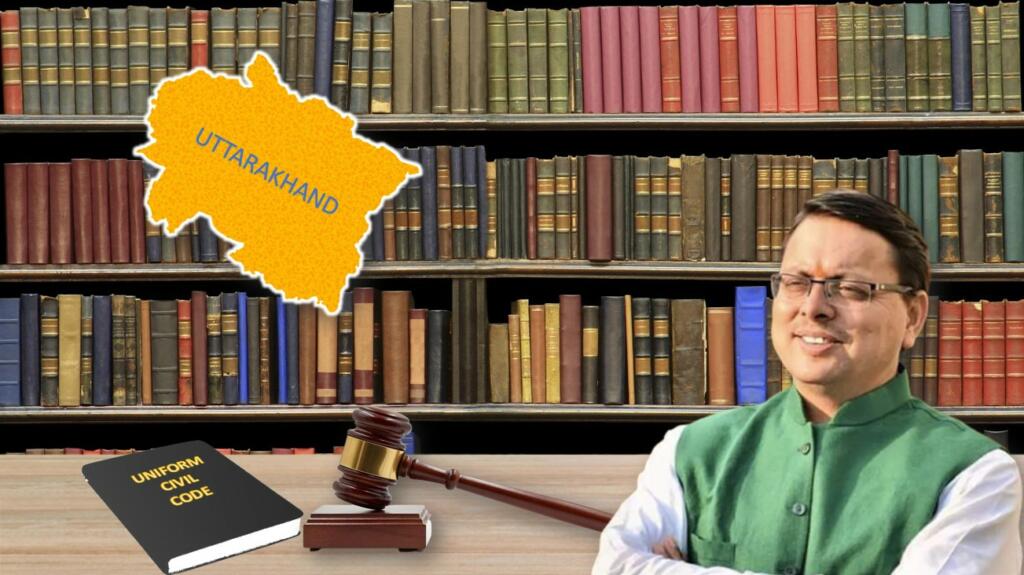Uttarakhand CM Pushkar Singh Dhami, adhering to poll promises announced the implementation of the Uniform Civil Code (UCC) in the state. “A committee of experts will be constituted at the earliest & it will be implemented in the state,” said Dhami.
We have decided to implement Uniform Civil Code in the state. The state cabinet unanimously approved that a committee (of experts) will be constituted at the earliest & it will implemented in the state. This will be the first state to do so: Uttarakhand CM Pushkar Singh Dhami pic.twitter.com/GJNAdk1XbF
— ANI UP/Uttarakhand (@ANINewsUP) March 24, 2022
Read More: How Pushkar Dhami’s retention will change the fate of Uttarakhand
What is Uniform Civil Code?
It is a codification of all personal laws of the various religion in India into a single code to bring uniformity in the matter of marriage, adoption, divorce, and succession. It is an effort to root out regressive practices in personal laws to bring them in conformity with modern and secular political objectives.
Read more: Brace yourselves – The Uniform Civil Code is finally coming
Dr Bhim Rao Ambedkar wanted to introduce UCC in India, but due to resistance from Congress and other members of the constituent assembly, it was left with succeeding generations to implement the UCC and was incorporated in Article 44 of the Directive Principles of State Policy (DPSP). Expressing his exasperation towards the personal laws, he questioned members of the constituent assembly ‘why religion should be given expansive jurisdiction which is full of inequities, discriminations and other things, which conflict with fundamental rights.’
Read More: Ambedkar would have cried today, not for Hijab, but the non-implementation of Uniform Civil Code
Rule of invaders rather a rule of reasons
Before the evolution of the concept of a nation-state, communities were governed by their religious text, words of intellectuals or religious leaders. But gradually they became regressive due to the political consciousness of the society. Life, Liberty, and Equality of a citizen was given precedence. The rule of law and rule of reason was ruling the state. Although, many western countries adopted the uniform civil code at the earliest India under the rule of Muslim invaders and after that, a colony of Britishers, was not able to ascertain the modern political consciousness of rule of law and was left with its orthodox personal laws.
Read more: Impact of Mughals on Indian Culture Chapter 2: The Effect on how Indians dress up
Politics of Appeasement
From British rule to the Congress era, the ‘appeasement’ of religious minorities thwarted the process of reform. The Muslim Personal Law (Shariat) Application Act, 1937 to implement Shariat law & The Dissolution of Muslims Marriage Act, 1939 to give validity of Triple Talaq was enacted by the British to give personal laws a statutory recognition. Further, after Independence, to invalidate the judgement of the Shah Bano case, Rajiv Gandhi brought The Muslim Women (Protection of Rights on Divorce) Act, 1986 to advance the policy of appeasement.
Read more: Muslim-style appeasement will not work on Brahmin voters but SP, BSP and AAP think it will
Hindu personal laws, on the other hand, were codified according to the modern political objectives of life, liberty, and equality through the enactment of The Hindu Marriage Act, 1955, The Hindu Adoptions and Maintenance Act, 1956 and The Hindu Minority and Guardianship Act, 1956. Moreover, Hindu society wholeheartedly embraced the change in personal laws but reforms in Muslim personal laws was reprehended by the Muslim community and the Muslim Personal Law Board.
After the Independence, there was very less effort from the political leadership to change the regressive personal laws of various religions, mainly due to violent protest from minority communities but Dhami’s initiation in this direction will lay the first stone and the country will fulfil the dream of Ambedkar, that is to bring Uniform Civil Code across the country.
